It’s been over 12 years since I signed my first antique booth lease and started my vintage and antique resale business. Over the years, I’ve learned a lot of antique booth lessons–some of them the hard way!
I truly believe reselling vintage and antique home decor and collectibles can be a viable side hustle or even a full-time business. And having a booth space in an antique or vintage mall is a great place to get started.
If you’re just starting out, read on to see my top lessons from over a decade in business!
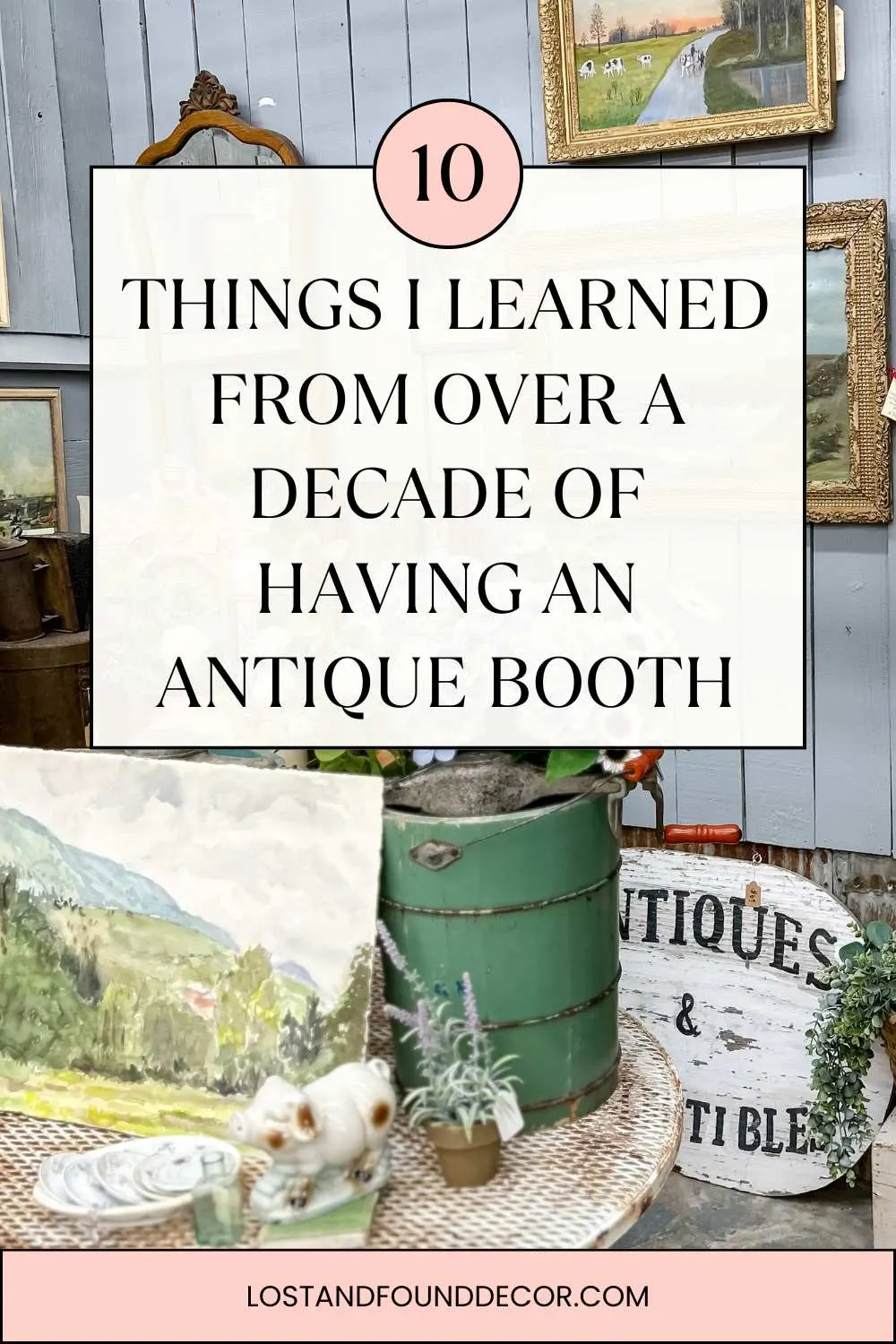
Antique Booth Lessons Learned Over a Decade in Business
1. Location is everything
Not all vintage and antique malls are created equal. Some cater more to a flea market type shopper, others have curated a higher-end clientele by offering more valuable items.
It can be tempting to sign up with the cheapest rent option you can find, but that may not be your best bet.
In my first ever booth space, I did just that- found a cheap place just opening up and signed a 6 month lease, only to leave with a feeling of failure and some money lost half a year later.
The store was poorly run, with no air conditioning, and stuffed full of old DVDs, tools, and other garage sale junk. No matter how cute and upscale I tried to make my booth look, I couldn’t get the right shopper because the mall itself stunk.
I’ve learned that it matters greatly what location I sell at. Not only does it need to be attracting a higher-end shopper, it also needs to fit my personal brand.
So my best advice is to research malls as much as possible before signing a lease. See if they get good foot traffic and what types of items their top dealers are selling. And be honest with yourself about whether your items will fit that vibe.
For example, if you wanna sell painted furniture but you are looking at a mall with high-end French and English antiques, it’s probably not the right fit.
Your patience in finding the right spot will pay off in the long run.
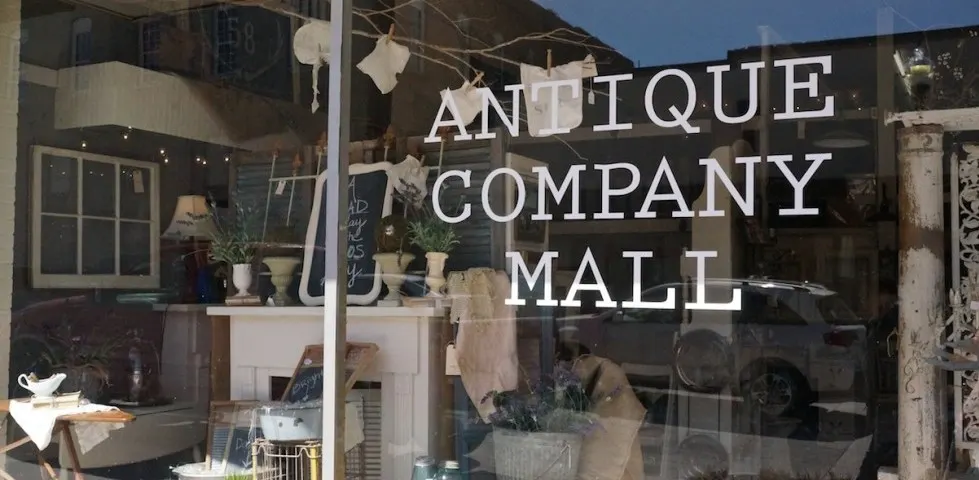
2. It’s ok to start small
When I “re-started” my business a few years later after that disastrous first booth try, my next space was roughly the size of a jacuzzi bathtub and cost me $60 a month of rent.
It was the perfect size to start with in a new location, one I could easily fill and use test out the waters.
Many new booth owners wanna jump in with a huge space and then quickly find themselves overwhelmed.
Not only does it take a lot of inventory to keep a bigger space full, but it also takes a lot of time sourcing, cleaning, and staging.
I’m so glad when I re-launched that I decided to go small at first. I made a little money each month and stuck the extra profits away to re-invest.
After a year, I was invited to a larger space and had the money saved already to purchase more inventory and pay the first month’s rent.
It was a slow, organic growth, without any debt. And it helped me learn the ropes at a new space, giving me a strong foundation for future success.
3. Source smarter, not harder
I think we can all agree that the most fun part of having an antique booth is hunting down the fun stuff to buy.
When I first started out, I went out just about every day to a thrift store and spent full weekends driving around to estate and garage sales.
But after a while. . . spending every waking moment driving and looking for treasures gets old, and honestly, it’s not sustainable long term.
If you want to be in the business for the long haul, you have to learn to source smarter.
This means being strategic about where you go hunting and how often.
Maybe spending 4 hours going to 20 garage sales only to find 2 or 3 cool things isn’t the best use of your time.
Try instead hitting up a weekend flea market or wait for an estate sale in a historic neighborhood to pop up–someplace where the odds of you finding something great is a little higher.
My best tips for sourcing strategically:
- Research estate sales ahead of time online and pick the ones that look the most full and are in older neighborhoods.
- Stock up at large weekend flea markets near you or during special local picking events. You can find many of them online here.
- Purchase large lots of vintage items from online auctions or sites like Ebay, divide them resell.
- If shopping on FB Marketplace, be sure to ask the person if they have any other items you can look at while there. This is a great way to find secret stashes of stuff!
- Shop your own antique mall or other local flea markets, looking for vendors running sales or going out of business.
- Make connections as you’re out shopping. Once people know you are looking, sometimes the finds will come to you!
4. Other vendors are your teammates, not competition
The vendor booth world can be a little weird sometimes. It’s easy to have it feel like a race, where we are all competing for the same finds and then the same shoppers. Only one person can win.
But really, that scarcity mindset isn’t helpful.
The truth is that as vendors around you do better, so will you. When your mall is rocking with great finds and lots of shoppers, that benefits everybody.
When you can learn to see other vendors and teammates and not competitors, you can help each other out with sourcing and staging.
Quite often, I pass on leads to other vendors when something offered to me for sale isn’t quite my style. And they do the same for me.
We help each other with our pricing, and share ideas about how to display items well. Leaning into the vendor community is a win-win.
Resist the urge to isolate and become secretive in this business. The more we can help each other out, the better we can all do.
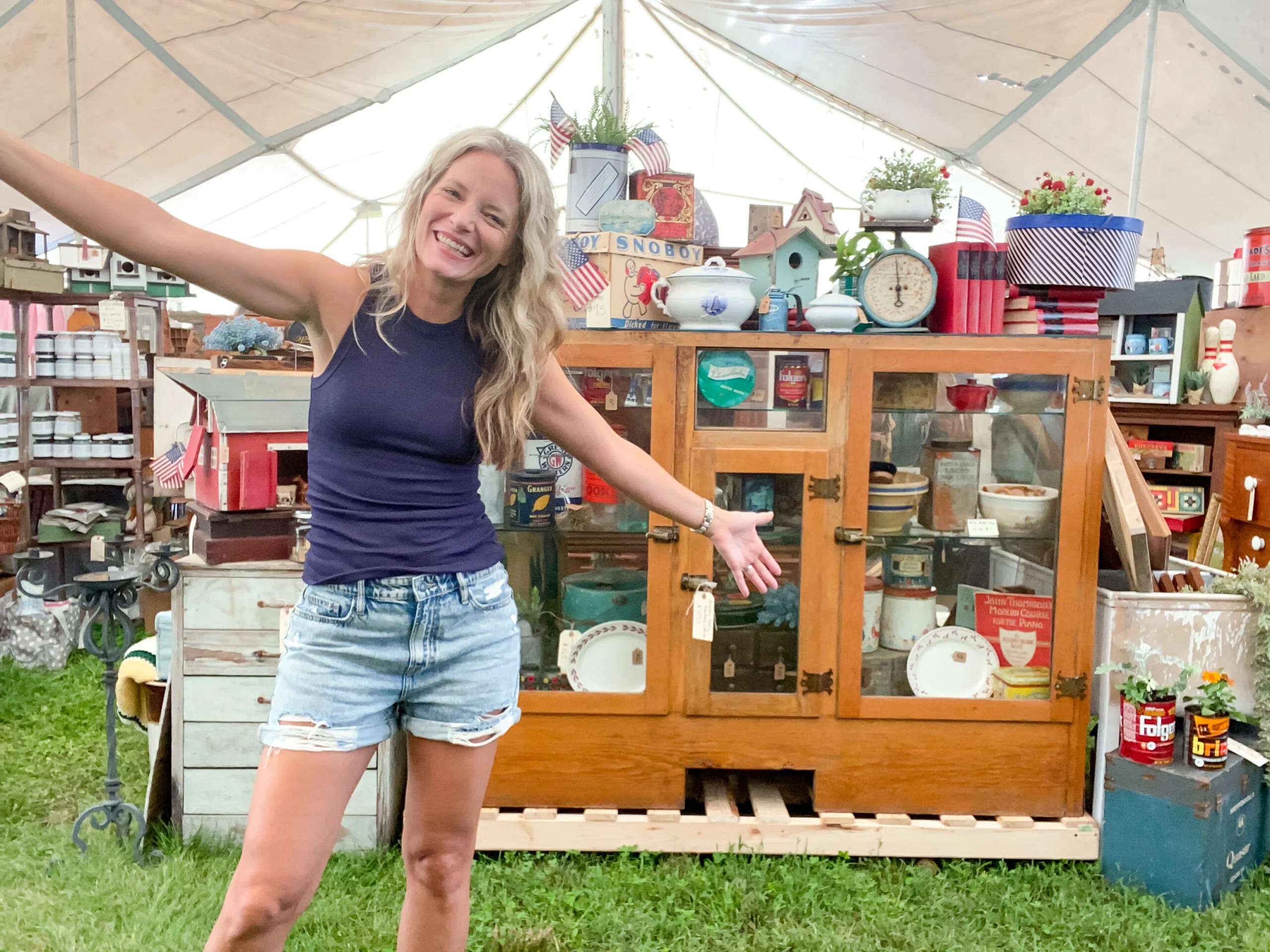
5. Popular styles change, and so should your inventory
The best and most successful vendors I know sell what they know customers are looking for, and not necessarily what they personally love or want.
Trends in the home decor world come and go, and it’s important that you stay on top of them as an antique dealer.
People will argue with me over this point- I hear a lot of “I can’t sell it if I don’t love it.”
And while I understand the sentiment, I wonder why we are trying to make this harder for ourselves?
It’s true that your own personal tastes and styles can and should influence what you stock in your booth space and sell to customers.
But you would be crazy to ignore the wants and needs of the customers walking through the store on a daily basis.
Over the last decade, the trends went from silver, to brass, to painted furniture, to stained furniture, to boho, to cottage, to primitive, to high-end English. I’ve sold it all and had to adapt along the way.
What works for one season may not work the next one, and it’s ok to change and update styles and branding as you go.
6. You’re gonna owe taxes
This is not tax advice and shouldn’t be taken as such. But you do need to understand that as your business grows, Uncle Sam is gonna want part of your profits and it’s best to plan for that from the start.
It wasn’t until year 3 of my business that I owed any taxes, and then I didn’t know I was supposed be paying an estimated amount in quarterly. I was hit with a bill at tax time and that was super discouraging.
The general rule for self-employment income, as I understand it, is this:
If you make over $400 in profit in the tax year, that income should be filed as self-employment income on your personal taxes the following year (see the IRS rules here).
If you do wind up owing a tax bill on your profits, they IRS also would prefer to have that paid in every quarter.
So as you are getting sales and managing your business, you need to set aside some money for this.
I dont’t want to get into the weeds of how much, because it varies wildly based upon a ton of other factors. My goal here is to just make you aware that this is a thing.
I highly recommend talking with your CPA or tax planner, they can help you wrap your head around this and get a plan.
You can also check out my Business Budget Tracker, where I help you not only plan for your estimated taxes but also budget and manage all your monthly business numbers.
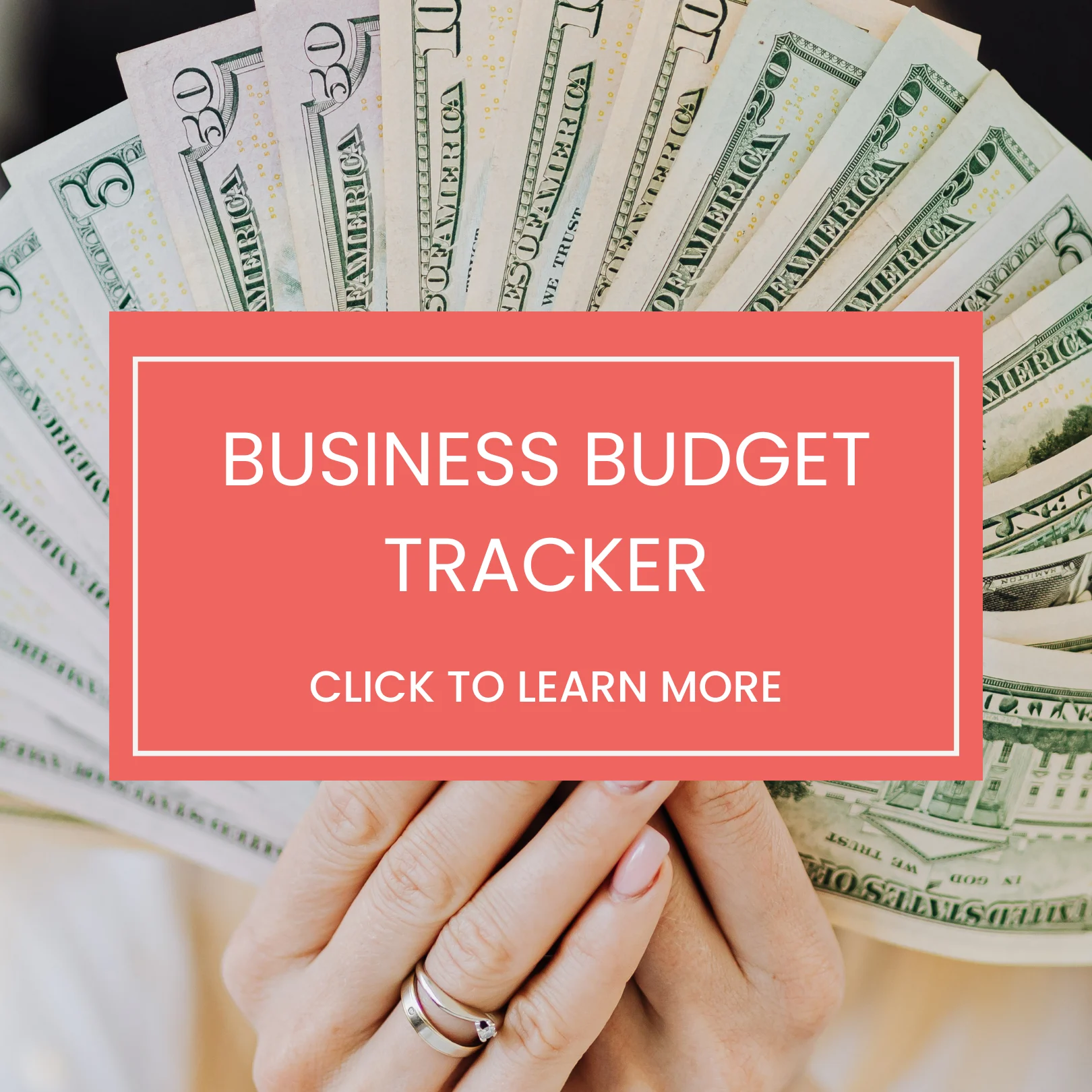 7. Watch out for overbuying
7. Watch out for overbuying
When I first started out, I was told over and over again by other vendors that my booth needed more stuff.
There seems to be pride taken in the antique dealer world about how much extra inventory you have in storage, like for every unit or tote you get 5 bonus points.
I’m being a bit silly obviously, but the problem is real.
I’m convinced that overbuying is one of the main reasons why many booth owners say they aren’t making any real money.
Not only is buying more inventory that you need to keep your booth space adequately stocked not good for your bottom line, it can create major overwhelming in your home and family.
You want to avoid piling up boxes in your shed, living room, and kitchen. You want to still be able to park your car in your garage. You don’t want your family’s life taken over by piles of stuff–trust me!
My best advice is to set a budget each month for new inventory to buy and stick to it.
If you need help planning an inventory budget, again my Business Budget Tracker is a good tool for just that.
8. It can be helpful to have wholesale items too
Over the last decade, I’ve sold a LOT of various things- from just found items to a furniture paint line, candles, soaps, and even a few pieces of clothing and jewelry.
When I first started out, 100% of my inventory was resale- used items I found at thrift stores, estate sales, etc.
Over the years, I learned how to shop wholesale for new items to sell as well, and began to mix those into my booth spaces.
The benefit of being able to purchase and sell wholesale items is that they can be great fillers and are easy to get your hands on. All you do is just order, and it’s delivered to your door!
Also, selling a line of furniture paint meant my booth was placed on a retailer map, which helped bring in new customers to both my specific space and the full mall.
Before jumping in and ordering, you want to make sure that your location allows new wholesale items. And it’s also good to make sure the stuff you order fits with the brand of your booth.
If you need help getting started with wholesale, I put together a free guide geared towards booth powers.
>> Click here to get the Wholesale Guide for Booth Owners
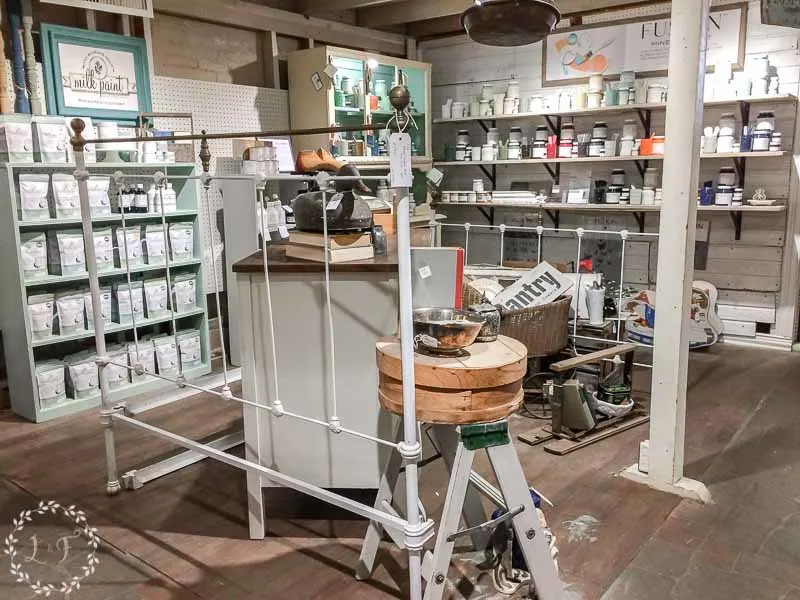
9. Be an asset to the mall management, not a pain
Vendor malls, like any large group of people, can have their mix of personality types. And then when you mix money into the equation, some of those personalities can become kinda nasty to be around.
Antique malls are also notorious for gossip, which is just something I don’t want to be a part of at all.
I decided early on I was not going to participate in any of the vendor shenanigans, like gossiping, badmouthing the store owners, or just neglecting my spot.
I wanted to be a great vendor and a helpful one- one the owners saw as reliable and good to have around.
And you know what? That attitude was rewarded with opportunities to move into better booths, front desk staff taking the extra step to help my customers, and even the chance for rent credits to my space for helping out at the register.
I’m not promising any of that will happen to you; I’m just making the point that if you commit to being a nice person who works hard and tries to be helpful around the mall, you’re more likely to see good opportunities come your way.
10. Become and antique dealer can bring more than just money into your life!
The vintage and antique community is really an awesome place.
I have made so many friends over this last decade, just by getting out into estate sales, flea markets, and local antique malls.
I’ve also had the chance to travel to so many places around the US looking for finds, and I even recently took an antique buying trip to London where I met some fantastic people.
Most people in my daily life aren’t into old stuff and hunting down treasure.
So when I found this community, I discovered “my people”- those who are passionate about the same things I am, which is just fun.
I started my booth as a way to help bring in a little extra income to my young family, but it’s brought so much more to my life over the years.
Final Thoughts on Antique Booth Lessons
There’s no such thing as a free lunch. Opening an antique booth is work, plain and simple.
But it’s work that can be fun and rewarding in so many ways!
And if you can learn to treat your booth like a business, then I do believe it can also be profitable.
So what are you waiting for?
Check out my Booth Sellers Bootcamp
I created the Booth Sellers Bootcamp to help new and established booth vendors take their booths from hobbies to businesses. Whether you’re just starting out or have been in the business for awhile, there’s something in the course for you.
It’s already helped over 300 booth owners, maybe it could help you? If you want to learn more, let me know below.
You may enjoy these related posts:
10 Best Selling Antique and Vintage Items in 2025
Practical Tips from Veteran Antique Booth Sellers
How to Pick the Right Price for Your Antique Booth Items
51 Ideas for What to Sell in an Antique Booth 2025

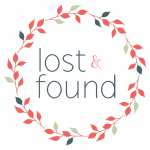
Colleen
Friday 18th of April 2025
From being in the biz for a long time, I think the mistake I see people make is buying goods too cheaply. I follow a lot of thrift with me vlogs and women are only buying items under $5. And they have a garage full of crap. Some say that is what they pay because they don't want to make their husbands mad that they are spending a lot of money. That means their husbands don't want them to be in a real business. They say they "pay up" if they spend $6. I want to reach through the screen! The item is $5 because that is what it is worth. Rarely do you get a real bargain cheap unless the seller knows nothing about their items. I fish in the high priced waters -- I'm not a bottom feeder. If they raised their $5 limit to $50 they would actually make more money and their booths wouldn't look so trashy. Also, you are not an "antique" dealer if all you buy is vintage or garage sale stuff. To make real money you have to buy better inventory including real antiques. Shoppers want to see beautiful items when they come to your mall not junk. Some malls vet what you bring in and can ask you to remove it if it is not nice enough to meet their image.
Melanie Alexander
Tuesday 6th of May 2025
Those are great points! I do believe the line gets blurry between vintage and antique, and a lot of what is being sold is, as you put it, "junk". Better quality items attract a better quality customer.